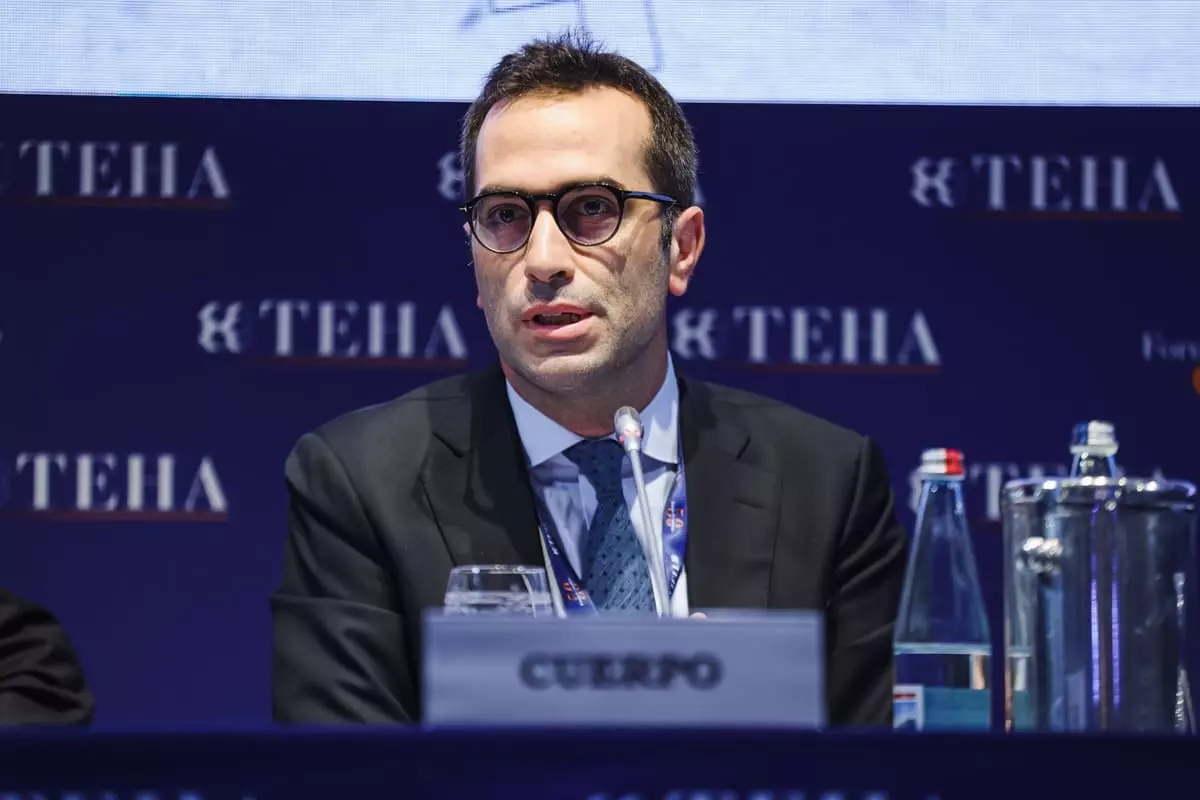MILAN (ITALPRESS) – “Tariffs, and more generally entering a race to protectionism or a trade war, harm everyone. They have a negative impact on everyone, starting with the country that imposes the duties.” Word from Carlos Cuerpo, Spain’s 44-year-old Economy Minister, who, in an exclusive interview with Milano Finanza editor Roberto Sommella, explains, “If we follow the experts’ analysis, for example, the duties announced on the automotive sector will also have an impact on prices for American consumers.” On the EU side, “we want to send a positive, constructive message and seek an agreement with the U.S.,” he adds. “We have a lot to protect: it is the largest economic and trade relationship in the world, with an exchange of goods and services of about 4.4 billion a day. But Europe will not be naive: we will respond if necessary, if we feel that some measures, such as these duties, are unfair. We have the tools to do so, and the response will be swift and proportionate.”
Regarding the EU’s rearmament plan according to Cuerpo “we need a comprehensive program to increase defense capabilities. All European leaders are aware of this, which is why they are meeting urgently.” We need to follow “the steps laid out in the White Paper on Security and Defense. We must have the flexibility to react in the short term, without cutting social spending or investment on competitiveness.”
The minister says he is convinced that “flexibility” will make it possible to avoid penalizing other necessary expenditures and brings up the example of Spain: “we are growing more than others, and the debt-to-GDP ratio has fallen more than 22 percentage points since the post-COVID peak. We achieved a deficit of 2.8 percent in 2024, below the 3 percent target.” All this “thanks to growth, jobs and fiscal responsibility.”
In 2024, “Spain grew by 3.2 percent, four times the Eurozone average. While representing only 10% of the Eurozone economy, we contributed 50% of its growth in 2024. 25-30% of the new jobs in Europe were created in Spain: about half a million a year. More importantly: the forecasts for 2025 and 2026 are positive. The secret is the balance of our growth model.” Also “migration has contributed positively to growth. And falling inflation has supported .private consumption. All this, together with responsible fiscal management, has created a virtuous circle.”
Regarding Ukraine, Spain “is contributing to the best of its ability. President Sanchez was in Kiev a few weeks ago and announced an additional billion euros in financial and military aid. We are at the forefront of support for Ukraine and will be part of the solution. There are still ongoing discussions, but we hope that with the EU’s help we can achieve lasting peace and then reconstruction.”
Spain and Italy “are already very aligned and have been successful in promoting many initiatives at the European level. We have common interests, such as the protection of the southern and Mediterranean borders. Another example is the Next Generation EU: our collaboration was essential in its creation. But looking to the future, we need to understand that each individual country, taken alone, is too small. We need the strength of the Union, both to be relevant in the world and to strengthen the internal market.”
Regarding the banking sector, Cuerpo believes that “as long as the relevant market for banks remains national, any merger must be evaluated on the basis of its impact on national competition. We must first unify European financial markets. Only then can we have an environment in which large banking transactions make sense at the European level. And we must also consider the dynamic potential of these large companies: the ability to invest and maintain good conditions for consumers in the long run. This will be a key element for the future.”
There is a focus on a Capital Markets Union, as Mario Draghi calls for. “It has been a frustrating journey over the past 10 years: there has been a lot of talk about it, but little has been done,” he says. “Now we have not only changed the name ù from Capital Markets Union to Savings and Investment Union, but we are working in earnest to achieve it.”-
Spain has put a concrete proposal on the table: the Competitiveness Lab. It is a new governance tool that allows “coalitions of the willing” to move forward on individual projects without waiting for the 27″ agreement. For example, “creating common savings or investment instruments, harmonizing SME ratings, facilitating access to credit and directing savings to European projects and companies.” It is also important to achieve an energy union: “We need to invest in interconnections. Again,” he says, “we need common investments and shared financing, because the benefits are for everyone. And it is needed to strengthen Europe’s energy independence.”
– IPA Agency photo –
(ITALPRESS).

